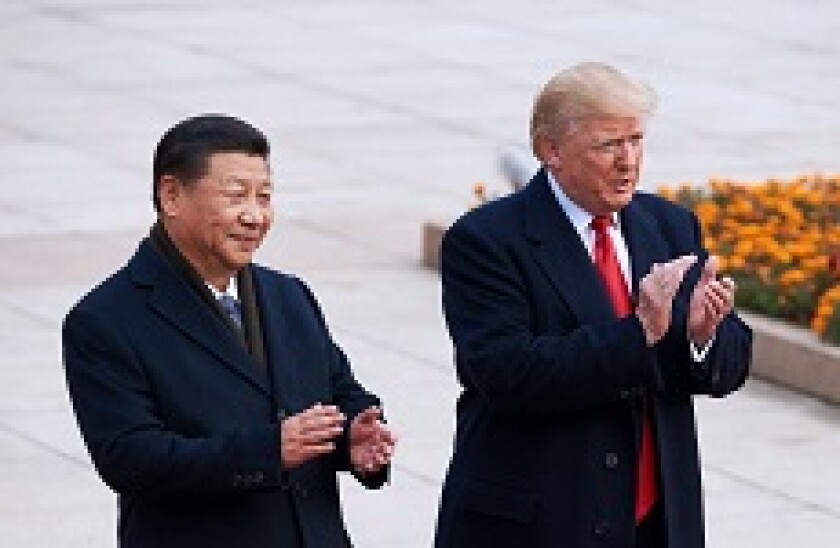The coronavirus could have brought the world together, showing that common problems require common solutions. But as Donald Trump continues the blame game against China, it looks more likely to push the world’s two most powerful countries further apart.
Trump took a brief break from his anti-China stance after a ‘phase one’ trade deal was signed in January. But over the weekend, the US president once again threatened additional tariffs against Chinese companies. Trump, alongside some senior members of his administration, is pinning the blame for the Covid-19 outbreak on China ─ and he promises retaliation.
The US-China trade war has dragged on since the summer of 2018. With the US presidential election looming in November, it seems likely that Trump's threats will only get louder. China will serve as the perfect scapegoat for Trump, whether it is being blamed for the coronavirus or for stumbling economic growth. That is only going to increase volatility for China’s offshore bond issuers.
These issuers spent much of the last year defying the trade war, picking their moments during bouts of volatility to sell nearly $202bn of public dollar bonds last year, according to Dealogic. But that was when the trade war was the major source of uncertainty. As commodity prices continue to flag, and the damage of the coronavirus on the global economy remains unpredictable, any additional noise will have an outsized impact.
On Monday morning, Asian investment grade credits widened by about 8bp-10bp in the secondary market, after the Hang Seng index fell 3.75%. High yield Chinese paper was largely unchanged on Monday morning, but opened a half point to one point lower on Tuesday morning.
Covid-19 has already taken its toll on Asian markets. Chinese bond issuers saw themselves cut off from the primary market in March. Even the weeks before and after the market shut, volumes were largely muted. Borrowers were forced to pay punchy new issue premiums. Chinese tech giant Lenovo Group, for instance, paid nearly 100bp of premium to sell its $650m bond in mid-April.
Still, it hasn’t been a complete blood bath in the Asian bond market. Premiums have dropped significantly recently, although they still vary depending on the issuer. Many Chinese companies that saw their bond prices halve almost overnight have since seen prices recover. Bonds from China's property sector, the leading issuers in high yield by volume, have held strong, perhaps helped by the lack of primary supply.
But the market is on a knife edge. If Trump doubles down on his trade rhetoric, sentiment could take a turn for the worse. Less available market windows will cause difficulty for Chinese borrowers, leading to a liquidity crunch for high yield issuers in particular. That would mean refinancing pressure and the risk of defaults.
There will be a continued hangover from the pandemic whatever happens, even in the event of meaningful talks between China and the US. The world has fundamentally changed. But that change means additional sources of volatility are going to have even more impact. And whether you’re a fan of Donald Trump or not, there is little doubt he’s a source of volatility.

